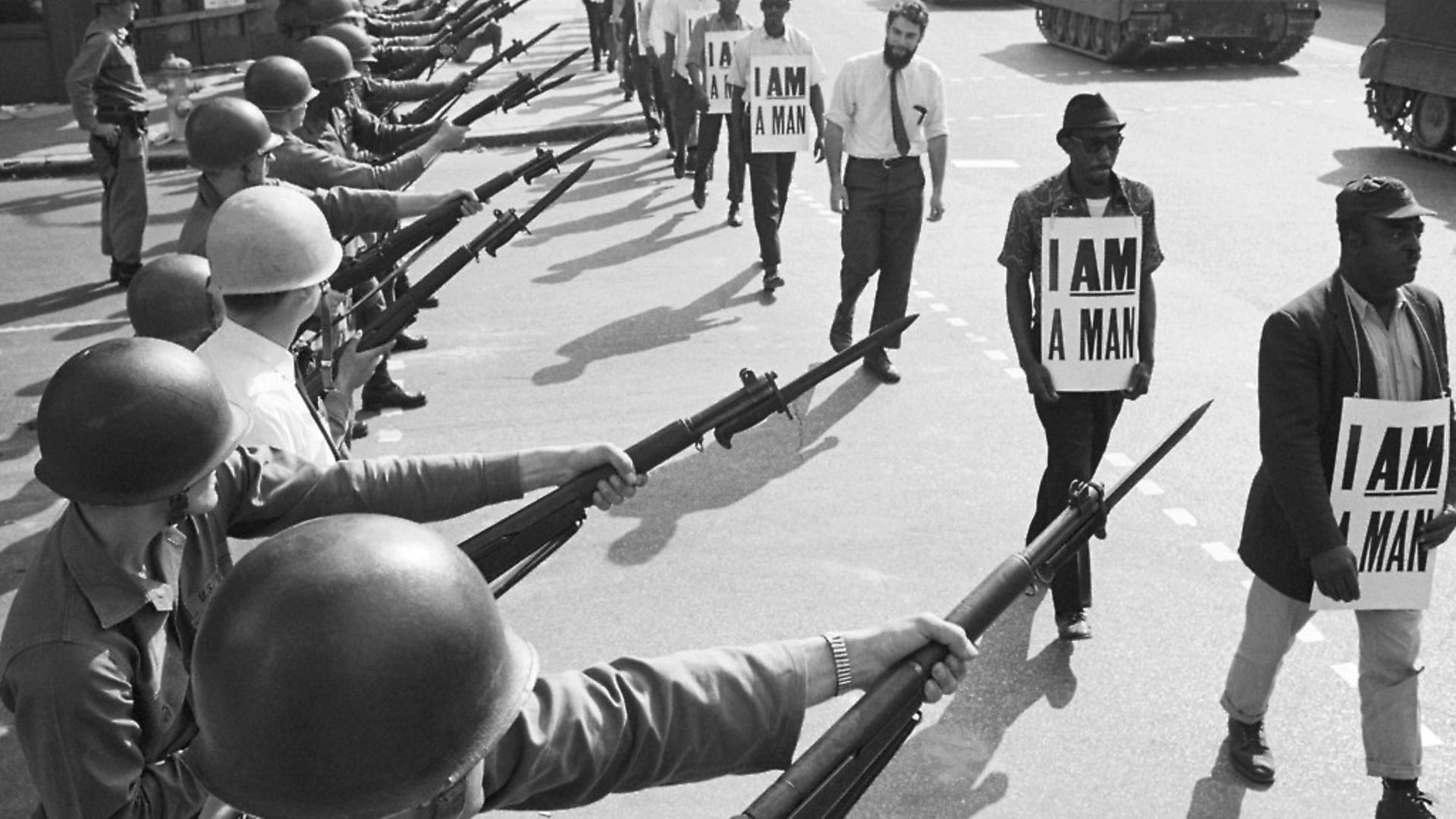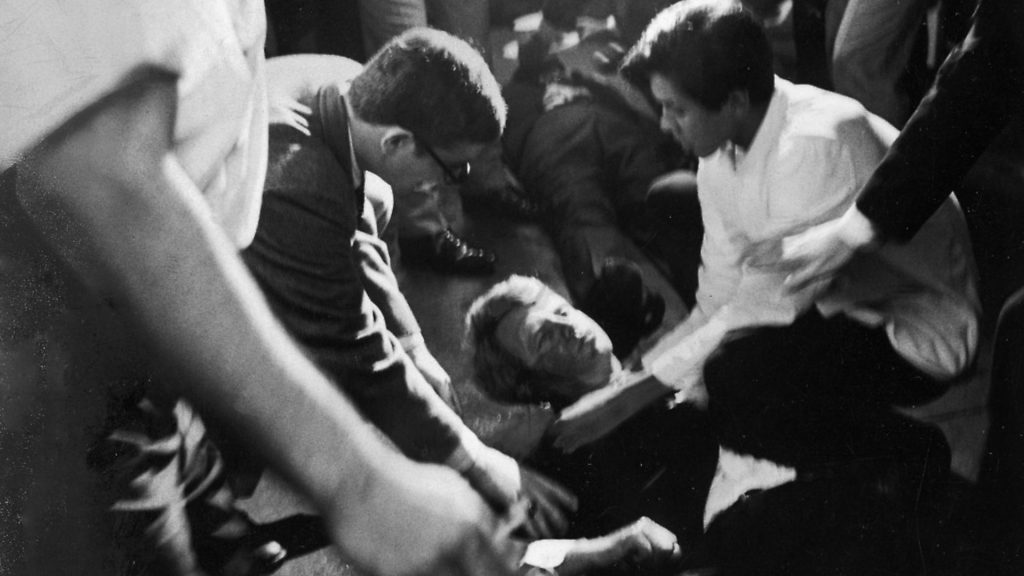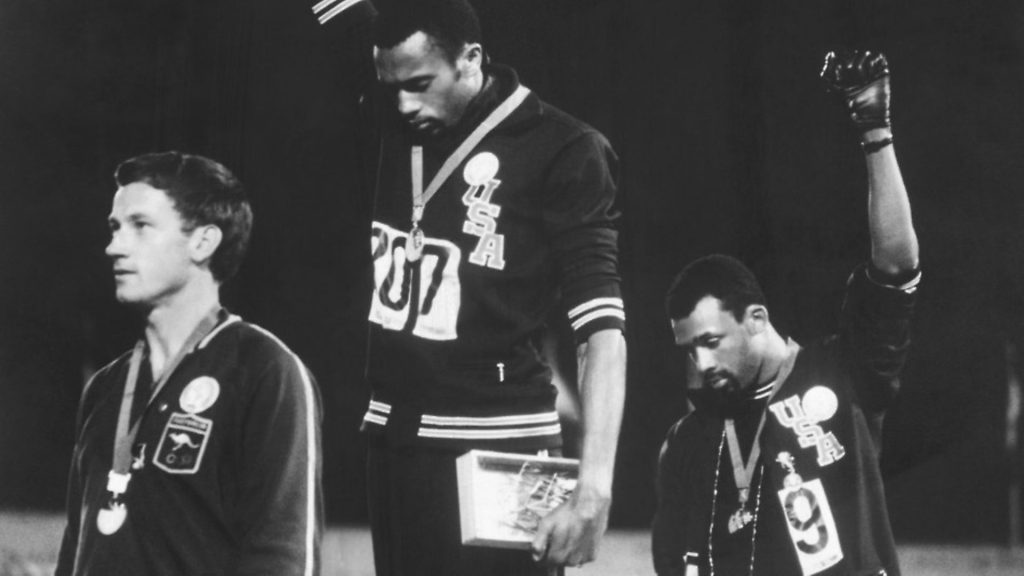
BONNIE GREER says the US must learn from this year’s events – which have affected, moved and impacted the nation.

I am often asked if 2020 is like 1968. By late September that year, this is what had had happened, as far the United States was concerned. These are the events that had affected, moved and impacted the nation.
In January 1968, the then 87-year-old member of Congress from Montana, Jeannette Rankin, led 5,000 women to protest against the Vietnam War. The motto ‘Sister is Powerful’ was born. What was also born was the reality of generational, racial, political and class differences in the feminist movement.
My friends and I, African American women, called ourselves ‘womanists’. We had, as far as we were concerned, nothing in common with white feminists. We aimed to break away from them, be ourselves. We stopped straightening our hair and wearing wigs, and extra bits of straight hair.
Also in January, the North Vietnamese launched the Tet Offensive. Working class guys were being drafted and sent to fight people that they had no war with. Black men were routinely ‘A1’, or a high draft number.

Some of my friends started hiding their brothers or trying to get enough money to flee to Canada or the UK. And also, we Americans saw, in the jungles of Vietnam, for the first time that we were not invincible. And we saw it on television. At supper time. Live.
In February, two African American male sanitation workers were crushed to death by machinery in Memphis. Their deaths highlighted the racist conditions under which African Americans worked. Nationwide. Black men marched and protested carrying signs that read ‘I Am A Man’. Protesting with them was the last public thing that Martin Luther King Jr did before he was assassinated.
In South Carolina, police opened fire on students protesting segregation. Three died. The police were acquitted but the protest leader was convicted and sent to jail for seven months. The pardon came 25 years later.
The ‘Kerner Report’, set up to examine urban uprisings, stated that the US was two societies – one black and one white. Separate and unequal.
In March, 15,000 Latino students walked out of high school in LA demonstrating against racism.
In April, Rev Dr Martin Luther King Jr was assassinated while taking the evening air on his hotel balcony. Urban uprisings broke out. Students walked out of campuses protesting racism and the Vietnam War.
In May, university students took over Paris and shut it down. Giving young people all over the world hope.
In June, senator Bobby Kennedy, who had announced the assassination of Dr King to an African American gathering in April, was himself assassinated.
The picture of him sprawled on the floor of the pantry where he was shot down, his eyes half open in bewilderment, was all over the front pages.
Also in June, 3,000 people occupied the Mall in Washington DC to campaign against poverty and for the poor. They set up an encampment called ‘Resurrection City’. I was there.
In July, the showdown known as ‘the Glenville shootout’ took place between the police and African American men in Cleveland, Ohio. Five days of rioting occurred. The stunned and shocked mayor was an African American man.
The USSR invaded and shut down Czechoslovakia to stifle the Prague Spring – the time when communism was relaxed and people could read what they wanted; say what they wanted. Soviet tanks rolling into Prague were a shocking sight. We young people came out in the streets.
In August, the Democrats held their national convention in my hometown, Chicago. We students and activists came out to shut the convention down. Because our man, senator Eugene McCarthy, the Bernie Sanders of his day, was going to be sidelined by the establishment candidate. I can still see the lines of Chicago police up and down the city’s premier boulevard: the posh, elegant and expensive Michigan Avenue.
The cops were armed to the teeth as far as the eye could see, a sight no one should ever witness.
In September, Richard Nixon, the Republican presidential candidate, went on Laugh-In, the anarchical comedy show on NBC. Hubert Humphrey – his Democrat rival – did, too. No major politician had ever done anything like this before. It was gruesome.
In October, at the Olympic Games in Mexico City, Tommie Smith and John Carlos raised gloved fists. They did this during the national anthem in protest against police violence; against poverty and racism. The next day, the International Olympic Committee ordered them home.
In November, Nixon was elected president on a law and order platform…
This chronology is to make clear that 2020 is not 1968.
There was no worldwide pandemic in 1968, an opportunity for human solidarity against a killer virus. There was no social media, where slogans can be born and ended, where movements can rise and fall.
My brother, who joined the Black Panther Party in 1968, had been a big aficionado of the Black Panther comic books until Dr King was assassinated. That led him to put fantasy away. He emailed me recently to ask if I thought this year felt like 1968.
Only in its ahistoricity: the ignorance, or refusal to know and learn the lessons of the past, to see what went before.
I was invited on Jeremy Vine’s BBC Radio 2 show the other day to talk about MLK’s ‘I Have A Dream’ speech. No one quotes the lines before we get to that part: ‘…one hundred years [after the Emancipation Proclamation] the Negro is still not free. One hundred years later, the life of the Negro is still sadly crippled by the manacles of segregation and the chains of discrimination…’ A century.
Youth does not exist to pay heed to old age; to what went before. All of us, in our time, believed that by virtue of our youth, the world had just begun, that no one had ever done anything before we had taken up the sword and the mantle. Maybe that’s normal. Maybe it should be that way, or we would never venture forth in hope and courage and optimism believing that we can make the difference. And human beings need hope and belief to survive.
But ‘the system’ is not called the system for nothing. Because it morphs; it mutates, it absorbs that which opposes it.
If this time is like 1968, it is in that we are ahistoric. The past is another country to which we need not go.
Yet Covid-19 may be the leveller that we soixante-huitards, as the French say, did not have.
And so, I will contradict myself: 1968 can teach us that change takes a long time. That there is nothing new under the sun. But we can make it new if we learn the lessons of the past.
A few of us in my generation did manage to learn a few things from the past: protest. Protest like our big sisters and brothers had done in the 1950s against racism, atomic weapons, war.
They largely protested as the human family.
In peace and endurance and hope.










